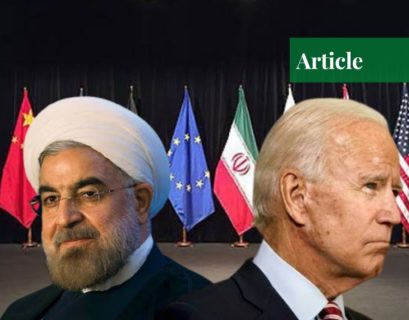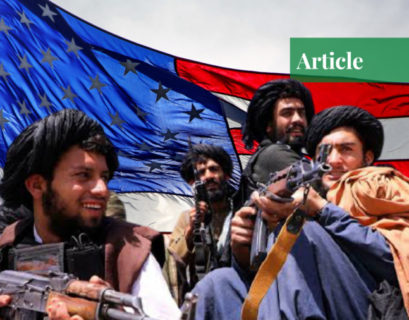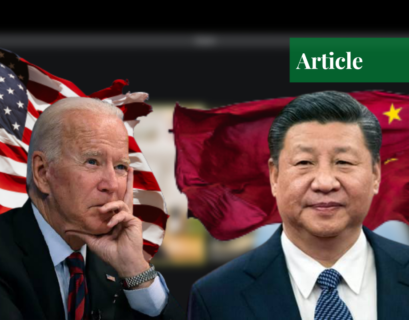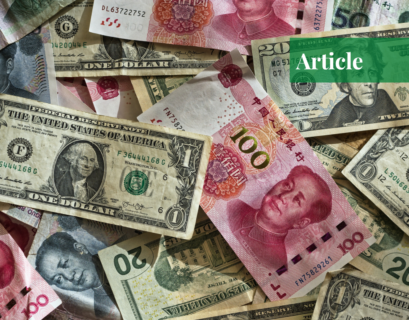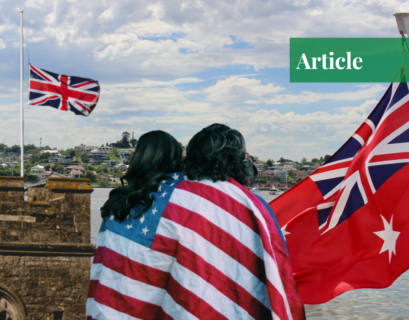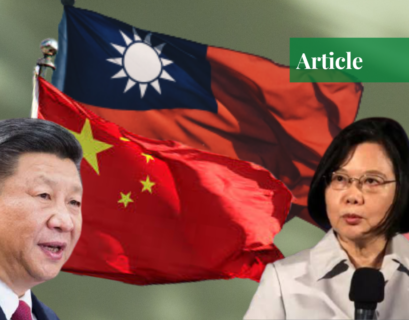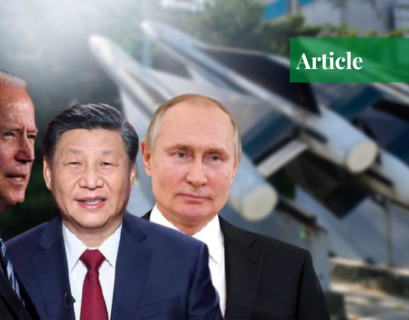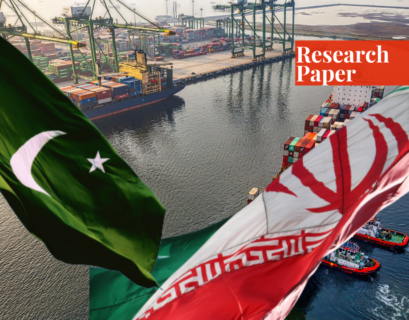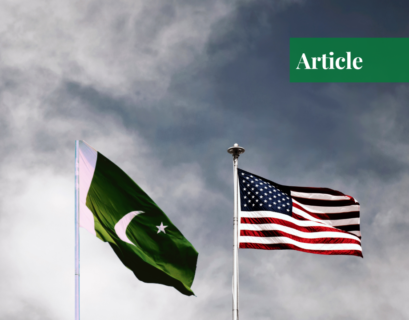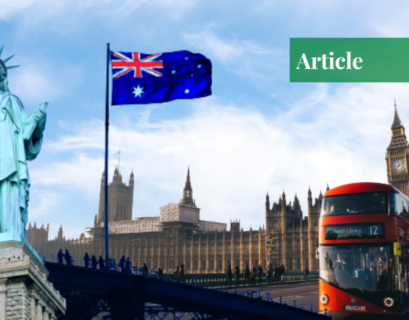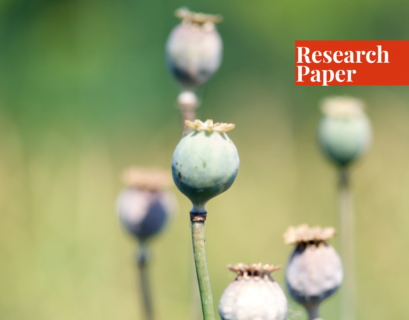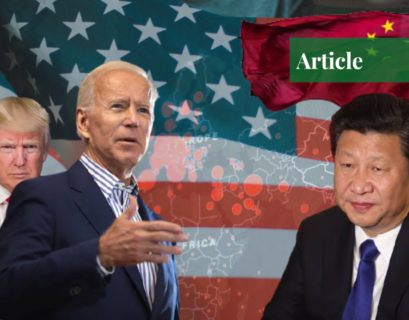The Iranian Nuclear Deal: What Has Changed During Biden’s Term?
The Joint Comprehensive Plan of Action (JCPOA) – a deal to limit Iran’s nuclear capability – fell apart after the former US president, Donald Trump, pulled the US out of the deal in 2018 and imposed sanctions on Iran. The author, Habiba Ali, notes that although the Biden administration is well aware of the importance of such an agreement with Iran, the latter has made it clear that without an end to the sanctions on it, the JCPOA cannot be reinitiated. Furthermore, despite the two states’ interest in restoring the deal, the 2021 negotiations in Vienna and Tehran have failed to revive it.
The Second Round of the Doha Talks Between America and the Taliban
About 40% of Afghanistan’s GDP and 75% of its public expenditure depends upon foreign aid. Since the Taliban takeover, the foreign assistance to the state has taken a plunge and the US government has seized over $9.5 billion worth of Afghan assets, worsening the humanitarian and economic crisis in Afghanistan. Given the deteriorating situation in Afghanistan, the US and the Taliban have, once again, decided to cooperate and pursue a second round of talks in Doha. Although the Taliban regime has not been recognized by the US, the former is hopeful that the two-day talks will start a “new chapter” in their political relations.
The Biden-Xi Summit: Deliberating Taiwan, Trade, HR Violations & Climate Change
The much-awaited Biden-Xi virtual summit took place on 15th November to deliberate and resolve the contentious issues between the two states. The meeting focused on four key areas: Taiwan, trade relations, human rights violations, and climate change.
China’s Currency Devaluation Explained: Yuan vs Dollar
In 2019, the former US president, Donald Trump, declared China a currency manipulator. Although his predecessor, Barack Obama, had refrained from labeling China as such, he had shown frustration with its currency devaluation. For China, the low currency has been a cause for greater foreign investment. Since the state has a cheap production cost and labor, the international community now relies heavily on China’s exports. The author, Muhammad Hamza Tanvir, notes that China stockpiles American dollars and then uses them to purchase US treasuries which, in certain cases, can prove disastrous for the US. He explains that the US and China are ensnared in the Thucydides’ Trap and any development in their relations will affect the entire world.
6 Reasons Why the AUKUS Security Pact Will Fail
AUKUS, the trilateral security pact between the US, the United Kingdom, and Australia, ensures the transfer of nuclear technology to Australia from the two major powers. In an effort to contain China’s influence in the Asia-Pacific, Australia will now be equipped with nuclear submarines. The author, Muhammad Aamir, argues that although this pact aims to intimidate China, it is not as useful as it seems and is more likely to harm Australia than benefit it. According to the author, there are six main reasons – including the timing of the pact – why AUKUS might be incapable of achieving its goals.
Is the Global Economy Still Collapsing Due to the Pandemic?
The ongoing coronavirus pandemic has left no part of the world unharmed. Aside from its devastating impact on human life, COVID-19 has severely damaged the global economy. The author notes that the collapsing global economy has increased unemployment, food insecurity, and poverty, and threatened international trade and tourism. Due to the pandemic, the oil demand has reduced by 30% and the oil prices have reached an all-time low, causing the oil-producing states to suffer a 50-85% loss in oil revenues. According to the Asian Development Bank (ADB), this collapse is likely to cost the world economy $5.8 to $8.8 trillion. The author explains that for the recovery of the global economy, international organizations and varying countries (i.e. the US, China, Japan, and Pakistan) have introduced several initiatives and stimulus packages. However, for these measures to be successful, international cooperation is necessary.
Will Taiwan’s Conflict with China Lead to Reunification?
The tensions between Taiwan and China escalated since the beginning of this month when Chinese military jets entered the air defence zone of Taiwan for four consecutive days. The author, Alina Fayaz, claims that China has become more emphatic in the region, and that the invasion of Taiwan will turn out to be the biggest threat to world peace in a generation. China’s muscle-flexing in Taiwan through increased military over the last few months has raised an international concern as the fate of the island will reshape the order in the region because of its potential.
The Hypersonic Arms Race Between the US, China & Russia
The development of hypersonic weapons has made it difficult to distinguish between nuclear weapons and non-nuclear strategic weapons. Yet, it has made it clear that hypersonic weapons cannot be taken lightly. The strategic instability created by these weapons has triggered a hypersonic arms race between the US, China, and Russia. The author, Syed Alyaan Kazmi, notes that each state views the other two with suspicion and fears a pre-emptive strike, thus triggering a security dilemma. The existence of hypersonic weapons greatly influences the decision-making process due to their unpredictability. Fearing the destabilization of the arms race between the nuclear states, the author suggests the establishment of new multilateral agreements to limit the development and proliferation of hypersonic weapons.
The Gwadar Port of Pakistan vs the Chabahar Port of Iran: Analyzing the Changing Dynamics
China has exhibited a deep interest in developing the Gwadar Port of Pakistan, under the China–Pakistan Economic Corridor (CPEC), for the enhancement of its strategic and economic benefits, while India is investing in the Chabahar Port under the tripartite Preferential Trade Agreement (PTA) with Iran and Afghanistan, with the drive to counter China’s growing presence in the region.
Both ports are situated at the international energy trading route and provide connectivity to different regions of the world including Central Asia, the Middle East, Africa and Europe. Such equalizing behavior of both states is not just causing problems for them but also for the neighboring states such as Afghanistan, Iran, and Pakistan, in this regard, which are the key stakeholders in the construction of these ports.
The authors, Ms. Kinza Shah and Mehwish Kayani, look into the geostrategic and geo-economic importance of both ports. This paper also explores the stances given by the major states of the …
Pakistan and US Relations: A History of Betrayal
Despite being close allies during the Cold War, the author believes the relations between Pakistan and the United States to be rather strained — and almost at a breaking point. The domineering United States has always taken advantage of Pakistan’s prominent yet vulnerable position in the South Asia region clearly embittering Pakistan.
The United States of America: The Superpower of War Crimes, Terrorism, & Hypocrisy
When it comes to human rights and democracy, the United States of America tends to place itself on a high pedestal. The US’ false sense of righteousness and its tendency to ignore its own crimes while calling out other states has allowed it to remain on its high horse. The author, Sarmad Ishfaq, notes that the US has actively supported insurgencies and covert regime changes, initiated a nuclear arms race, and killed 22,000 civilians in airstrikes. No incident can better represent the US’ war crimes and hypocrisy than its bombing of Hiroshima and Nagasaki. Yet, despite it killing hundreds of thousands of people, the world turns a blind eye to America’s transgressions.
The AUKUS Pact and Its Impact on Regional & Global Politics
The author, Muhammad Hamza Tanvir, intends to apprise the readers of the AUKUS pact – a trilateral security agreement between Australia, the United Kingdom, and the United States – and the impact it has on Sino-Australian relations. This article also examines what this pact would mean for the Southeast Asian region while analyzing the impacts of this deal on ASEAN, QUAD, and NATO.
The Incessant Opium War in Afghanistan
Afghanistan’s relation to the illegal drug trade can be traced back to the 1980s. Since then, opium cultivation has become an integral part of Afghanistan’s economy and the livelihoods of its farmers. The author, Madiha Rauf, notes that although the US and the previous Afghan governments have introduced measures to reduce opium production and trade, the efforts have been half-hearted. In reality, Afghanistan’s opium trade has not only benefitted the warlords and the Taliban but also the previous regimes. Although the Taliban regime has made promises to eradicate the illegal drug trade, given the state’s dependency on it, it is unlikely to fulfill these promises and the opium war in Afghanistan might not see an end in the near future.
From the American Invasion of Afghanistan to Taliban 2.0
The article portrays an educated yet comprehensive outlook of the Afghanistan conundrum. The author gives an insight into the US invasion of Afghanistan in 2001, the formation – and inefficiency – of the Afghan Army, the ultimate reclamation of Kabul by the Taliban, and their 2.0 version.
The Relationship Between America and China Under the Biden Administration
After Trump, the US looks to Biden for directing and navigating its foreign policy towards China. The revival of Quad and the US’s insistence on the investigation of COVID-19’s origins, among others, display that the Biden administration is more direct and forceful when it comes to countering China.
